Search
Did you mean: Qin Dynasty?
Search Results
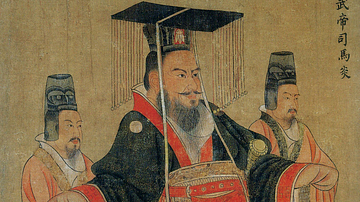
Image
Emperor Wu of Jin
Sima Yan, convinced Cao Huan to abdicate in his favor and then founded the Jin Dynasty in 266 CE, taking the throne name of Emperor Wu of Jin.
Thirteen Emperors Scroll, Boston Museum of Fine Arts
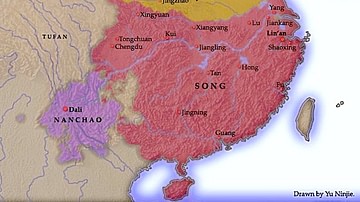
Image
Map of Southern Song & Jin States
A map indicating the territory of the Southern Song Dynasty, 1125-1279 CE and the Jurchen Jin state (1115-1234 CE).

Definition
Battle of Red Cliffs
The Battle of Red Cliffs (also known as the Battle of Chibi, 208 CE) was the pivotal engagement between the forces of Northern China led by the warlord Cao Cao (l. 155-220 CE) and the allied defenders of the south under the command of Liu...
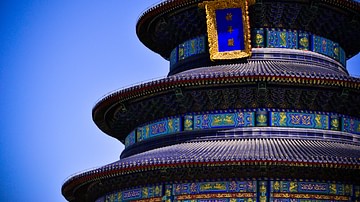
Definition
Ming Dynasty
The imperial Ming dynasty ruled China from 1368 to 1644. It replaced the Mongol Yuan dynasty which had been in power since the 13th century. Despite challenges from abroad and within, the Ming dynasty oversaw an unprecedented growth in China's...

Definition
Shang Dynasty
The Shang Dynasty (c. 1600-1046 BCE) was the second dynasty of China, which succeeded the Xia Dynasty (c. 2070-1600 BCE) after the overthrow of the Xia tyrant Jie by the Shang leader, Tang. Since many historians question whether the Xia Dynasty...

Definition
Han Dynasty
The Han Dynasty (202 BCE - 220 CE) was the second dynasty of Imperial China (the era of centralized, dynastic government, 221 BCE - 1912 CE) which established the paradigm for all succeeding dynasties up through 1912 CE. It succeeded the...

Video
Rise of Jin and the War of the Eight Princes DOCUMENTARY
Support our channel and pre-order Eight Princes campaign back through our link: https://store.steampowered.com/app/1102310/Total_War_THREE_KINGDOMS__Eight_Princes/?utm_source=KingsandGenerals&utm_medium=Influencer&utm_campaign=Youtube...
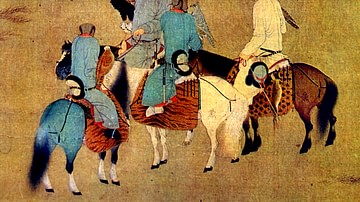
Definition
Khitan
The Khitan people formed the Liao dynasty and ruled parts of Mongolia, Manchuria, and northern China from 907 to 1125 CE. Adopting elements of Chinese government and culture, the Khitan were more than a match for their rivals the Song dynasty...

Definition
Qin Dynasty
The Qin Dynasty (221-206 BCE) was the first dynasty of Imperial China (defined as the era of centralized, dynastic government in China between 221 BCE and 1912 CE) which united the separate states following the Warring States Period (c. 481-221...
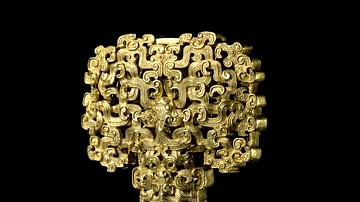
Definition
Zhou Dynasty
The Zhou Dynasty (1046-256 BCE) was among the most culturally significant of the early Chinese dynasties and the longest lasting of any in China's history, divided into two periods: Western Zhou (1046-771 BCE) and Eastern Zhou (771-256 BCE...